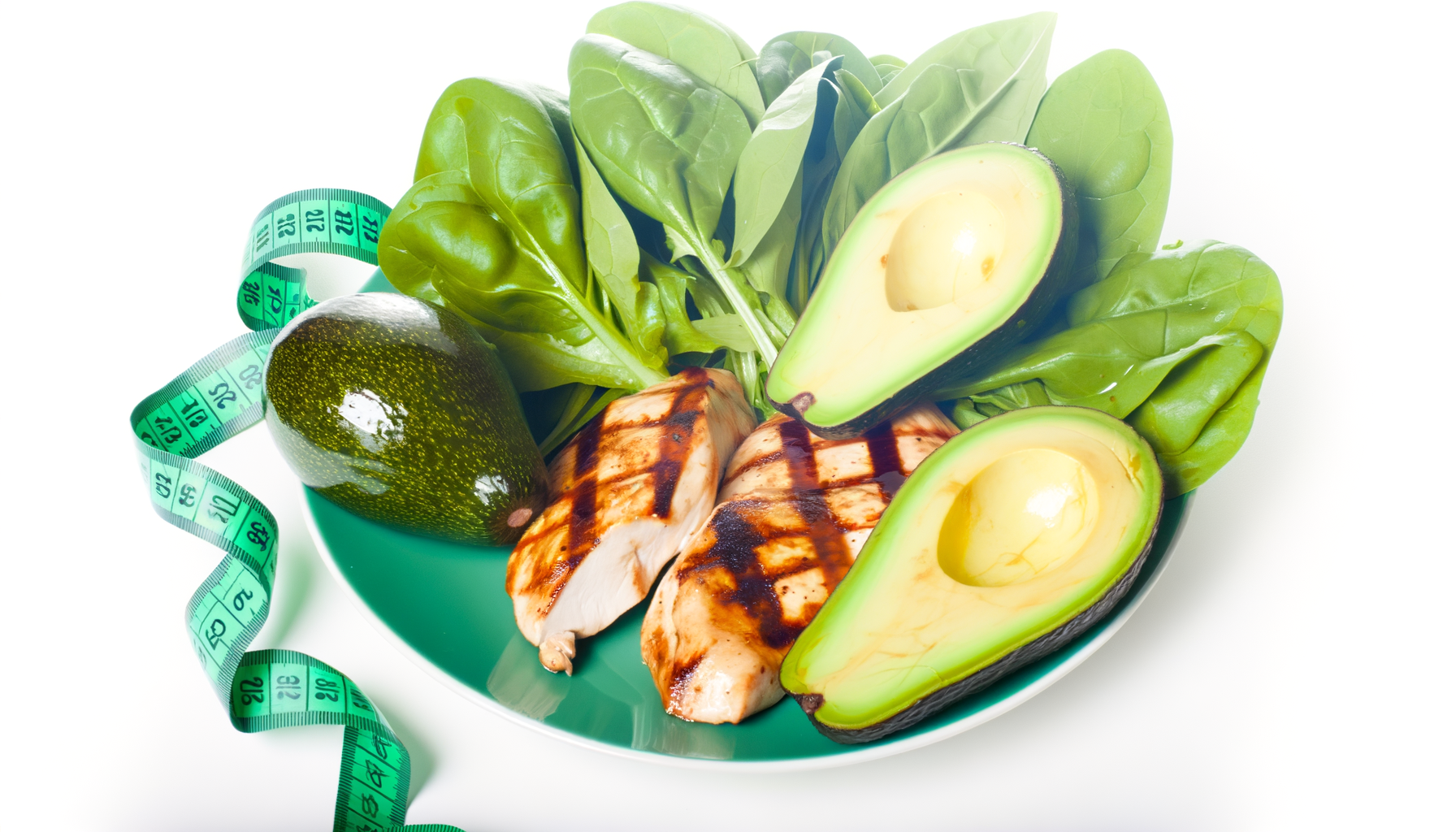How to Use Calorie Calculators for Personalized Supplement Protocols
Optimizing Your Nutrition: The Power of Calorie Calculators in Supplement Protocols
In the realm of health and fitness, personalized nutrition plans are becoming increasingly important for achieving specific goals, whether it's weight loss, muscle gain, or overall health optimization. One of the key tools in creating these personalized plans is the calorie calculator. Here, we will delve into how to use calorie calculators to develop and refine your supplement protocols.
Understanding Calorie Calculators
Calorie calculators are sophisticated tools that help estimate an individual's daily caloric needs based on several factors, including age, sex, weight, height, and activity level. These calculators often use formulas such as the Mifflin-St Jeor equation to calculate the Basal Metabolic Rate (BMR) and then adjust it for Total Daily Energy Expenditure (TDEE). ```html BMR (men) = 10 * weight (kg) + 6.25 * height (cm) - 5 * age (years) + 5 BMR (women) = 10 * weight (kg) + 6.25 * height (cm) - 5 * age (years) - 161 ```
Once you have your BMR, you can adjust it based on your activity level to get your TDEE. For instance, if you are moderately active, you might multiply your BMR by 1.55.
Calculating Macronutrient Needs
After determining your daily caloric needs, the next step is to calculate your macronutrient requirements. Here’s how you can do it:
Protein: Protein intake is crucial for muscle repair and growth. The recommended daily intake of protein varies from 10-35% of total calories, with more active individuals requiring higher amounts. For example, a moderately active person might need 1.4-2.2 grams of protein per kilogram of body weight. ```html Protein (calories) = (Total calories × Recommended percentage) / 100 Protein (grams) = Protein (calories) / 4 ```
Carbohydrates: Carbohydrates should make up 45-65% of your total daily calories. This can be calculated by multiplying your daily calorie requirements by the recommended percentage and then converting the calories to grams. ```html Carbs (calories) = (Total calories × Recommended percentage) / 100 Carbs (grams) = Carbs (calories) / 4 ```
Fats: Fats should constitute 20-35% of your total daily calories. Similar to carbohydrates, you can calculate the fat needs by multiplying your daily calorie requirements by the recommended percentage and then converting the calories to grams. ```html Fats (calories) = (Total calories × Recommended percentage) / 100 Fats (grams) = Fats (calories) / 9 ```
Integrating Calorie Calculators into Supplement Protocols
Using a calorie calculator can significantly enhance your supplement protocols by ensuring that your nutritional intake aligns with your specific goals and needs. Here are some steps to integrate calorie calculators into your supplement protocols:
Determine Your Goals: Whether you are aiming for weight loss, muscle gain, or general health improvement, your goals will dictate your caloric and macronutrient needs. Use a calorie calculator to estimate these needs based on your activity level and other factors[4>.
Customize Your Macronutrient Ratios: Based on your calculated needs, adjust your macronutrient ratios accordingly. For example, if you are on a weight loss diet, you might reduce your carbohydrate intake and increase your protein intake[2).
Choose the Right Supplements: Once you have your macronutrient ratios, you can select supplements that complement your diet. For instance, if you need additional protein, a protein powder supplement could be beneficial. Similarly, if you are low on certain vitamins or minerals, consider adding those to your supplement protocol[5).
Monitor and Adjust: Regularly monitor your progress and adjust your supplement protocol as needed. This might involve recalculating your caloric needs if your weight or activity level changes[4).
Real-World Examples and Case Studies
To illustrate the practical application of calorie calculators in supplement protocols, let's consider a few examples:
Example 1: Weight Loss
If Sara, who weighs 150 lbs and is moderately active, wants to lose 20 lbs, she would first calculate her TDEE and then adjust her caloric intake accordingly. Using a calorie calculator, she might determine that her TDEE is 2000 calories. To lose weight, she would aim for a daily intake of 1500-1700 calories, with a macronutrient split of 25% protein, 40% carbohydrates, and 35% fats. She could then choose supplements like protein powder and healthy fats to support her diet.
Example 2: Muscle Gain
For someone like John, who is highly active and aims to gain muscle, the approach would be different. John would calculate his TDEE and then increase his caloric intake to support muscle growth. He might aim for a daily intake of 2500-2800 calories, with a macronutrient split of 30% protein, 50% carbohydrates, and 20% fats. Supplements like creatine and mass gainers could be added to his protocol to support his muscle-building goals.
Tools and Resources
There are several tools and resources available to help you calculate your caloric and macronutrient needs:
WP Calorie Calculator: This is a powerful tool that can be integrated into your website to help visitors calculate their caloric needs and create personalized nutrition plans.
DRI Calculator: This calculator provides detailed estimates of your daily recommended intake of vitamins, macronutrients, and micronutrients based on your specific needs.
MyNetDiary: This platform allows you to set and track personalized nutrient targets, including macronutrients and other essential nutrients.
Conclusion and Next Steps
Using calorie calculators is a robust way to optimize your supplement protocols and ensure that your nutritional intake aligns with your health and fitness goals. By understanding how to calculate your caloric and macronutrient needs, you can make informed decisions about your diet and supplement choices.
If you are looking to integrate a calorie calculator into your website or health and fitness program, consider tools like the WP Calorie Calculator Plans, which offer flexible and customizable solutions for attracting visitors and generating new leads in the health and fitness industry.
Remember, personalized nutrition is key to achieving your health goals. By leveraging the power of calorie calculators and other nutritional tools, you can create a tailored supplement protocol that supports your unique needs and helps you reach your full potential.











